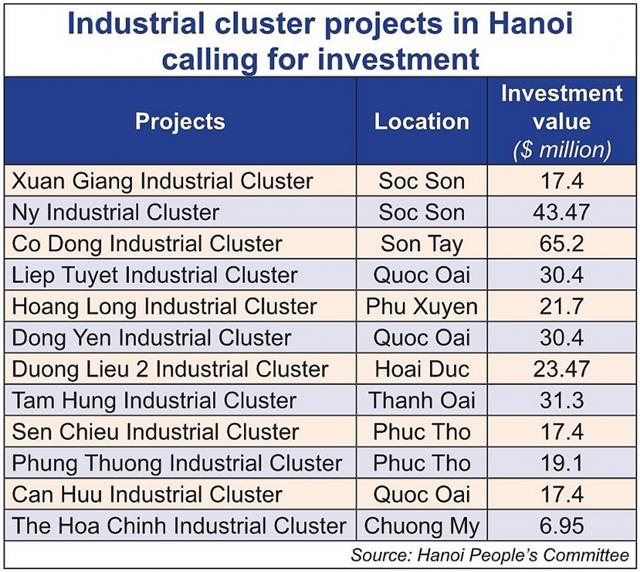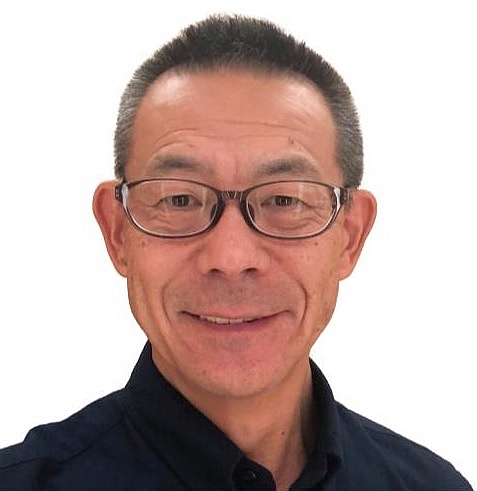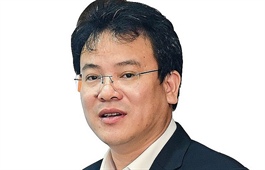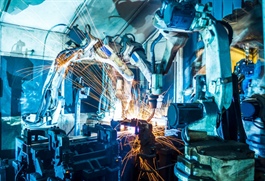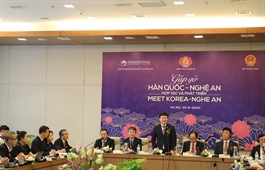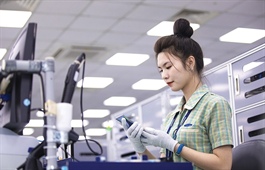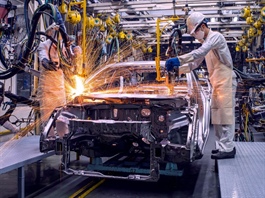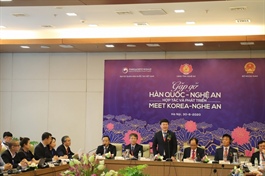Hanoi emphasising its investment advantages
Hanoi emphasising its investment advantages
While Hanoi is making further improvements to call for fresh investment in development of industrial zones to pick up a new possible wave of investment shifts, the problem of how to efficiently absorb the capital must be taken into consideration.
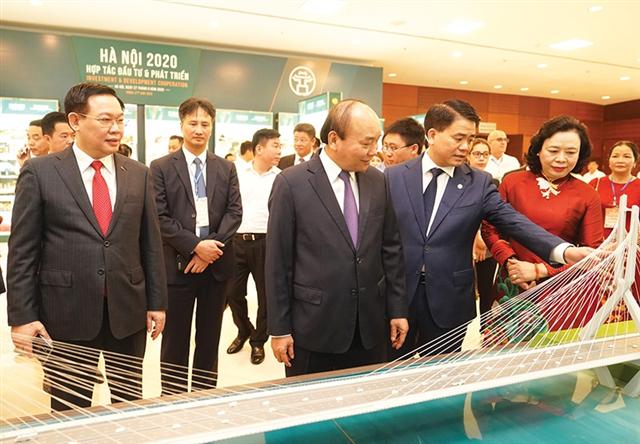
Prime Minister Nguyen Xuan Phuc (middle) attended the “Hanoi 2020 – Investment and Development Co-operation” conference taking place on June 27
|
Hanoi People’s Committee has unveiled a list of 60 new projects calling for private investment worth over VND14.2 trillion ($617.4 million) in the future, focusing on industrial zones (IZs) and industrial clusters (ICs). They are among 282 projects worth VND483.1 trillion ($21 billion) in total that Hanoi plans for luring future funding.
The new ventures will be located in the most attractive spots, including four in Soc Son district, four in Phu Xuyen district, 10 in Thuong Tin district, five in Ung Hoa district, and three in Chuong My district.
IZs and ICs have, among others, lured the highest number of foreign-invested projects in Hanoi, followed by those in Hoa Lac High-tech Park in recent times on the back of growing interest in processing and manufacturing. As shown by the committee’s statistics, processing and manufacturing is now second in the sectors gaining most attention among foreign investors, making up about 34 per cent of the city’s total foreign direct investment (FDI) in the first five months of 2020.
A number of foreign investors are now queuing up to obtain investment certificates in the city in this field, with some already succeeding. Tens of investors received certificates for IZ and IC projects at the city’s late June investment promotion meeting. Outstanding related ventures on the list were the Thanh Van-Tan Uoc IC of Confitech, the Kim Bai IC of Telin Group, Nam Phuc Tho-GD1 IC of T&T Group, and Xuan Thu IC of Dai Phong JSC.
IZs and ICs are seen as attractive to developers aware of potential growth of the local market, driven by an increasing middle class, stable economic growth, and improved business climate. In addition, the global trend in investment shifts is seeing Vietnam and Hanoi in particular benefiting when it comes to Southeast Asia.
Hanoi already has major advantages, but focus is now being placed on how the city can reach targets and absorb capital more efficiently. At the investment promotion conference last month, representatives of international business associations in Vietnam gave their recommendations for this issue.
Virginia B. Foote, chairwoman of the American Chamber of Commerce in Vietnam, suggested that Hanoi should focus on administration reforms, especially the tax system and auditing, while developing more modern IZs, better infrastructure, and more quality logistics services for investors.
Meanwhile, the European Chamber of Commerce in Vietnam suggested that the city should take new steps in administrative reform and information updates to facilitate investor decisions. Effectiveness of strategies to bet on new orientations and solutions to increase attractiveness will focus on prioritised sectors for each foreign investor based on their expertise.
At present, cities and provinces are in a race for business climate improvement in order to take the upper hand in foreign investment attraction.
|
Hanoi is one of the country’s five most attractive destinations for foreign ventures. In the 2018-2019 period, the city took the lead in FDI attraction with respective total registered FDI of $7.5 billion and $8.7 billion on the back of big improvements in the business climate. In the first half of 2020, the capital city ranked fourth among the country’s most attractive locations in this regard.
Currently, foreign investors with the most potential for the city are from Japan, South Korea, Singapore, Taiwan, the United States, the European Union, the United Kingdom, Australia, and New Zealand. As of June 20, Hanoi had 6,238 valid foreign-invested projects registered at $37.63 billion, according to the Ministry of Planning and Investment.
|
Yanai Hisayuki - Chief administrative officer, Nidec Chaun Choung Vietnam Corporation
Ever since 2018 when Nidec laid its first project in Vietnam, we have seen rapid changes in Vietnam’s economy, but still it is very open and friendly to foreign enterprises. The investment environment in Vietnam has always been appealing, even in the middle of this current pandemic. The Vietnamese government has done an incredible job in protecting the country as well as maintaining economic growth. Japanese investors assess this as a big achievement and appreciate what the Vietnamese government has done. As we have a big investment in a high-technology project in Hoa Lac High-tech Park, our expectations range from receiving the highest incentives under law to having support from the authorities in implementation of the project. We have recorded interruption in the project progress due to the pandemic, hence our expectation is to catch up with the planned progress in order to promote project efficiency and meet global demand. Vietnam has always been an attractive investment environment to the world on the strength of good infrastructure, dynamic market, cheap materials, and cultural diversity. There are, however, still some weaknesses. The first to mention is air pollution, which is a major problem for citizens in Vietnam and particularly in Hanoi. With the rapid growth of many industrial zones across the country, the Vietnamese government should take action to protect the environment, and secure healthy living conditions for both investors and citizens. Secondly, the condition of freeways in Vietnam is still poor and many potholes appear. This also lowers the volume of freight transported, causing a rise in transportation costs for investors. Ywert Visser - Vice chairman, EuroCham Vietnam
It is already clear that Hanoi is a national leader when it comes to overseas investment, as it attracted more than $8.4 billion in 2019. Economic growth today here in Hanoi has more than doubled over the past decade, and is not just because it is Vietnam’s capital – it’s also a direct result of positive administrative reforms and acted as a magnet for investors. In particular, the rise in digital service associates and business registration tax declarations help to reduce the administrative burden on companies. Hanoi’s strong infrastructure network and good connections to industrial and export zones make it an obvious choice for overseas companies looking to invest in Vietnam. And this will even become more prominent in light of upcoming implementation of the EU-Vietnam Free Trade Agreement with a huge favour on taxes, which opens up new chapters for European investment and innovation. In order to continue attracting foreign direct investment now and in the future, our members recommend continuation of development of online resources, specifically for investors from the EU. Aleksandrs Parfjonovs - Head of Vietnam Operations Grindeks JSC
There has been positive development in the investment climate in Vietnam, but there is still a lot of work to be done. An online registration platform was launched recently, easing the process of submitting applications for pharmaceutical registration. It is a great incentive, which however needs to be also be implemented efficiently. I represent the Hanoi offices of two pharmaceutical companies, and our main focus is being able to bring high-quality medical products to Vietnamese people within short times frames. We hope, as pharmaceuticals contribute to more than 10 per cent of Vietnamese imports, that this industry will get more support for high-quality EU-branded generics. We are constantly working on increasing our product portfolio in Vietnam, as it is our key market in Southeast Asia, with the highest growth expected. We are planning on significantly increasing our revenues over upcoming years, but in order to do so, we hope there will be more support in the timely review of pharmaceutical applications. |


